Pocket revolution: Smartphone convergence in the 21st century
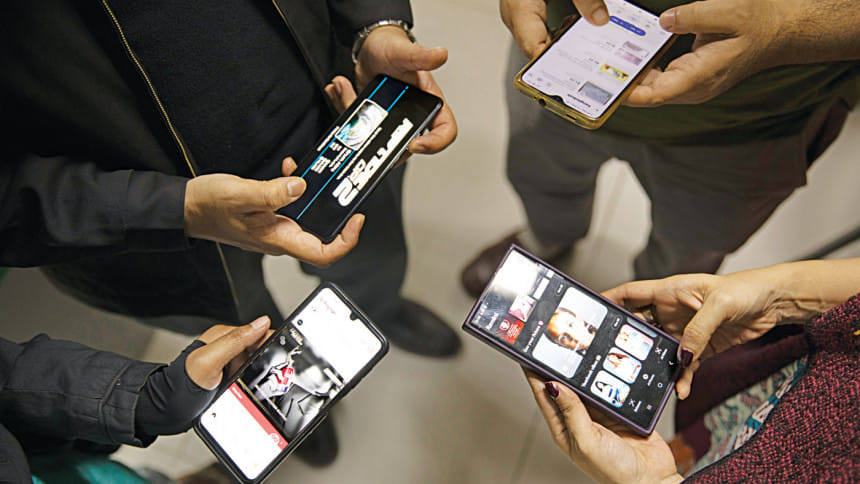
Ever heard the words Walkman, Gameboy, Discman, Watchman, Camcorder? If the answer is no, you are probably 24 and born in the era of laptops and smartphones. In which case, gather around kids, for I am about to spin a yarn on how it feels for fossils like me to live in a world where everything is at your fingertips and have everything you need in one handy convenient place.
Even for someone like me who has seen the birth, evolution, and eventual domination of smartphones, and therefore lived a life before it all, it still takes a monumental effort to imagine life even functioning without smartphones.
The quick Google search for a word you just heard, looking up someone's address and finding exact directions in Maps, snapping a photo of a bird sitting on a branch in front of a beautiful sunset, texting a friend 8,000 km away as if they are right next door — things like these still make me feel like I am living in the sci-fi cartoons I grew up watching.
While all of the above still makes me giddy with wonderment, those abilities alone are not enough to make it the global phenomenon that it is. You see, smartphones have not just replaced a handful of gadgets. No, the story goes much deeper than that.
Back in 2010, if you bought a smartphone, you were either a serial gadget freak or a massive show-off (sometimes a bit of both). That's because smartphones in the early days still had not attained half of the functionalities it has today, and so, people in 2010 were not ready to embrace them.
The cost of entry did not help matters either. What changed was how smartphones tactfully started to include things that enrich our lives. And that's what we will be looking at today — all the things that the smartphone revolutionised. The emergence, and later convergence, of smartphones is as great an innovation to modern society as the wheel was for ancient society, and for once, it is not hyperbole.
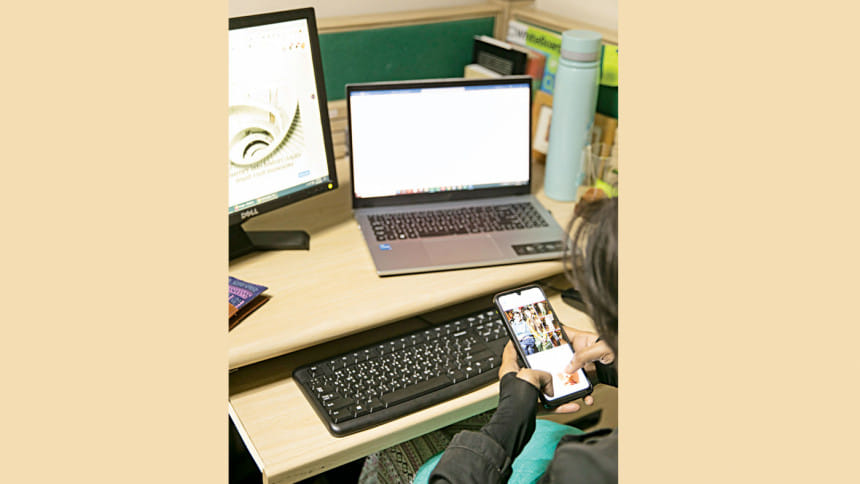
Communication
Most of you reading this probably do not know about the anxiety of 'calling abroad.' Back in the day, you could only do that via landline telephones, and the cost was astronomical enough to put off any unnecessary calls.
In the early noughties, there was MSN Messenger, so you could text someone, and Skype for video calls, but with how the internet was back then, even those were luxuries, because both required a computer.
The first breakthrough for communications was back when cellular phones hit the scene but still, things had remained mostly the same, apart from the introduction of texting via SMS, even during the early days of the smartphone.
With the rise of instant messaging services for smartphones, and eventually, video calling, and internet-based calling such as WhatsApp, Messenger, etc., communicating evolved into a whole new realm. Suddenly, talking to someone on the other side of the planet became as trivial as getting yourself a bottle of water from the fridge!
Even the concept of communication itself has undergone a massive change. From vocabulary-rich sentences to shortening words to save time and space (lyk, lyf, lol anyone?), to replacing words altogether for emojis and now, we can convey complex emotional states and phases through memes.
I am weird, you say? If you happen to have a time machine somewhere, drop by 2007 and mention 'meme' to someone, and see the faces they make. That, in itself, will be meme-worthy.
Smartphones can even break down difficult hurdles like language. Travelling somewhere with a different language and you see a sign on the road you do not know about? Take out your phone, start Google Translate, and done.
Yes, understanding a different language is that easy now, and it's poised to get even easier. The rise of AI (Artificial Intelligence) will help to bring down language barriers even more. There are already live-translation machines that can translate what a person is saying in your native language, in real-time, as the conversation happens, and soon, these features will appear in your regular phone calls.
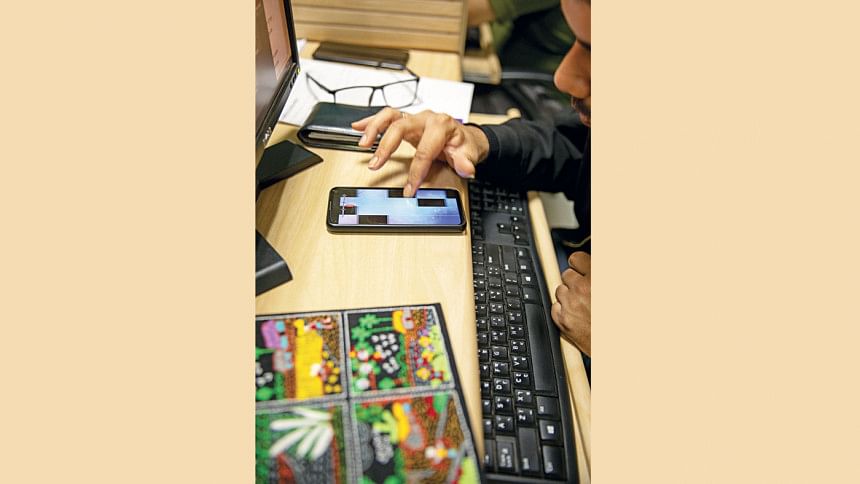
Multimedia
Remember the Walkmans and Gameboys and whatnot I alluded to at the start? Smartphones put an end to every one of those gadgets. And here's how.
When people these days say they are bored, I wonder how that is possible when they have access to nearly every movie, TV show, music, book, and entertaining video ever made at their fingertips. That's right, smartphones have basically become our one-stop entertainment shops. After all, it's a big (relatively speaking) screen with speakers and the internet.
To cash in on this device, and the reach it has, streaming services have cropped up, offering movies, TV shows, and music to its users for a monthly fee. These services have also put systems in place that learn from your watching/listening behaviour and serve you content that suits your tastes, meaning you are always discovering new things to consume.
Remember digital cameras or camcorders? Once tools for enthusiasts, smartphones have enabled the everyman to experience the joys of capturing their most treasured moments, or the freedom to chase after their creative passion for photo/video graphy, leading to all new careers and forms of content that we consume.
Were you a gamer in the '90s? Do you fondly look back on memories of playing Pokemon on a Gameboy in school during recess? Well, if you were unlucky enough to not own one, do not worry. Future generations will not have to go through this trauma, because smartphones are capable of playing games so vividly real, it makes old consoles look like a joke.
Did news of the Apple Vision Pro dominate your feed recently? Well, if it did, it did so for a good reason. With a resurgence of interest in VR/AR devices, after Google's spectacular fumble with the tech despite introducing them first, ordinary people will get a taste of an immersive technological showcase.
Picture this; you sit on your sofa, put on the headset and connect your phone to it. Suddenly, your entire vision is dominated by virtual screens while you see the real world. Feeling like watching a movie? The headset will create a virtual movie theatre-sized screen. Feel like playing a game? Well, the headset will make you feel like you are IN the game. And the possibilities haven't even been realised yet.
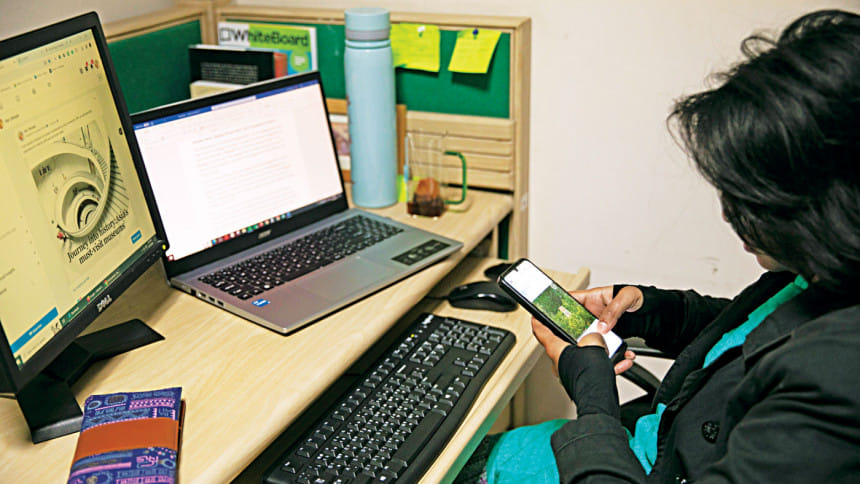
Business and education
Are you someone who whips out their phone the moment they come across something unfamiliar and Google it to find out? That is but a small demonstration of how powerful of a learning tool a smartphone is.
Once upon a time, if you needed to look something up, you had to find it in a book. Now though, with the internet maturing into what it is today, and smartphones evolving enough to take full advantage of it, smartphones have become an unrivalled learning platform, becoming our pocketable private tutor.
With a smartphone, you can access and enrol in innumerable online courses, programmes, and degrees, or learn new skills, languages, and subjects, using various apps and websites, such as Duolingo, Khan Academy, and Coursera.
The days of lugging around heavy textbooks have almost faded into oblivion, thanks to e-books and educational apps that transform our smartphones into portable libraries. Learning a new language, mastering a musical instrument, or even delving into the intricacies of astronomy and astrophysics has never been more accessible.
Smartphones did not just revolutionise education, they also reinvented business. Smartphones are the key reason for the remote working opportunities we take for granted. No longer being tethered to your desk, and the ability to transform your immediate surroundings, be it a café table, park bench, or comfy bed in a hotel suite, into your workspace does not just boost morale, but productivity as well.
Smartphones have also enabled the rise of small independent businesses through the use of dedicated sites or apps. Promotion has also been made easier because you no longer have to rely on a third person. You can promote your business/service the way you wish and appeal to an audience of your choosing.
Smartphones have also given rise to the 'gig' economy, connecting freelancers with clients across the globe, while entrepreneurs launch businesses with nothing more than a smartphone and a vision.
The smartphone-driven gig economy has also given rise to on-demand service platforms. These platforms connect customers with various services, such as transportation, food delivery, and more, using technology and a network of workers. Sounds complicated? Well, the food that is being delivered to you as you read this, is part of this new business opportunity that smartphones created.
Shopping and lifestyle
For those of you unaware of how we did things in the "dark ages" here's an example: if you wanted a packet of crisps, you had to walk to your local 'mudir dokan,' talk to the shopkeeper and buy one yourself. Well, rejoice Gen Zs and Alphas, for your need to avoid facing humans and doing illogical labour has been largely granted through online shopping via smartphones.
While online shopping has been around for some time, it really took off during the COVID-19 pandemic when you could not go outside for dear life. This taste of unlimited power of ordering whatever you need through your smartphone, having it delivered to your home, and paying for it digitally has been nothing short of a revelation for shoppers. Plus, with 'big brother tech' constantly listening and watching your internet activity, it can even suggest products you did not know existed but now cannot live without.
Smartphones are also becoming increasingly responsible for our general well-being. Hard to imagine? Not really. Start counting the number of smartwatches and fitness bands on people's hands and that should give you a rough idea. These smart devices, in conjunction with smartphones, monitor and provide ways to improve our physical health by tracking our steps, calories, heart rate, blood pressure, and sleep patterns. They also provide us with fitness suggestions, such as exercises, yoga, and meditation, that can be done anywhere, saving you a monthly gym membership.
Smartphones are also essential in telemedicine, allowing doctors and patients to connect, and share information and treatment advice from great distances. They can also connect us to health professionals faster than ever before in cases of emergency.
Social media
This is perhaps a smartphone's true claim to fame these days, and something that nearly all smartphone users spend most of their time on. It is genuinely difficult to explain social media, especially to an alien if one were to land today, but the simplest explanation would be that it's another plane/platform of interacting with the people around you and the world in general.
Platforms like Facebook, X (formerly Twitter), and Instagram have created a digital world and every user, its digital citizen. These platforms allow us to find communities where we would fit in, news we would be interested in, make friends we'd never find otherwise, and now, create a career, be that by becoming an influencer, entertainer, content maker, or simply running a digital business without any added cost.
Social media has its downsides, many of which are now finally coming into light, such as addiction, depression, anxiety, and so on, most of which are fuelled by the very algorithm designed to keep us on these platforms. However, I still maintain that while there are negatives to social media, the positive, for now, outweighs the negatives.
The smartphone's transformative impact on society is hard to argue against. These pocket-sized marvels have transcended beyond being mere gadgets; they can be safely called extensions of ourselves, enriching every aspect of our modern existence. With the big boom of AI just around the corner, the smartphone is about to go through another revolution, and its place in our lives will further converge as we go further into the 21st century. It may not look like a metal and glass slab, but rest assured, it will very much be here.
Photo: Sazzad Ibne Sayed

 For all latest news, follow The Daily Star's Google News channel.
For all latest news, follow The Daily Star's Google News channel. 

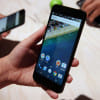

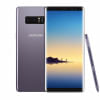

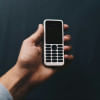


Comments